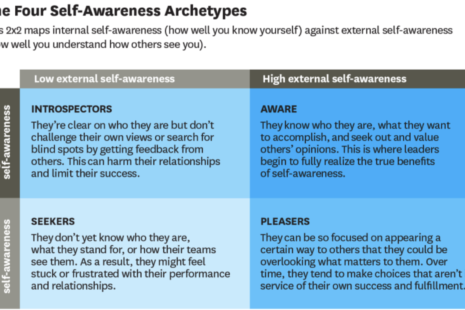 What Is Emotional Intelligence?
What Is Emotional Intelligence?
Emotional Intelligence is an old idea but how does it affect the workplace?
Emotional Intelligence (EI) defined: A simple definition is the art and science of managing one’s emotional and social functioning. EI functions may be displayed unconsciously, however, the conscious use of emotional intelligence adds a new element to one’s ability to manage oneself and influence others.
Why Is Emotional Intelligence Important?
Think about the people you respect the most, your heroes. What do you most admire about them? Is it their functional knowledge? Their experience? Chances are what you most admire about them is how they took an interest in you. Or, you observed how they handled themselves in stressful situations. What you most likely admire about them is found in following 15 elements of emotional intelligence.
The Elements Of Emotional Intelligence
- Self-Regard: regard for or consideration of oneself or one’s own interests. This isn’t arrogance but rather a healthy self-regard
- Self-Actualization: the process of fully developing one’s abilities. This quality is recognized when you see people who know exactly what they want from life
- Emotional Self-Awareness: the knowledge and awareness of one’s emotions. This is manifested by knowing exactly what you are feeling
- Emotional Expression: the ability and act of making your feelings known by speech, writing or some other method. These people know how to express their views in the face of highly emotional events
- Assertiveness: confidence and behavior in the willingness to act
- Independence: freedom from outside control or support
- Interpersonal: relating to or involving relations between people
- Empathy: the feeling of understanding and/or sharing another person’s experiences and emotions
- Social Responsibility: caring or concern about concepts or ideas greater than self
- Problem-Solving: the process or act of finding a solution to a problem
- Reality Testing: the objective evaluation of an emotional thought against real life
- Impulse Control: the ability to subdue impulses in order to achieve long-term goals
- Flexibility: the capability of bending or flexing, willingness to change or modify
- Stress Tolerance: the ability to be relaxed and composed when faced with difficulties
- Optimism: hopefulness and confidence about the future or the successful outcome of something
How To Improve Emotional Intelligence
Think about any one of the above 15 elements and how it might affect the other. For example, imagine a situation when a supervisor knows exactly what s/he wants (self-actualization) but has low empathy or flexibility. How would you describe their behavior? Driven, pushy, combative, uncaring? Or, a team member who has high self-regard and low interpersonal skills. Arrogant, cocky, full of them-self? S/he has a drive for results but poor people skills. What does this look like day-to-day? The examples are almost unlimited. The point is any EI attribute over used or underused can cause disruption in the workplace. Want to understand this better? There is a way to have a greater understanding of every team member or Check this out
What Is Emotional Intelligence Test?
Many universities offer classes on the subject of this blog. USC summarizes some of the benefits of emotional intelligence in the workplace:
Key Takeaways for Management
- Rational intelligence focuses on rational, “objective” analysis of facts and figures.
- Emotional intelligence consists of insight into others’ emotions as well as your own.
- High emotional intelligence drives collaborative leadership and win-win outcomes.
- Emotional intelligence is correlated with confidence, resilience, and perseverance.
- Testing for emotional intelligence can help with hiring and leadership development.
- Both rational and emotional intelligence have roles to play for “whole” leaders. MORE
In summary, successful leaders possess some of the above-mentioned qualities. There may have been unconscious awareness but a careful examination would reveal, with few exceptions, that the most successful people in today’s culture have higher levels of emotional intelligence. I offer 4 different emotional intelligence assessments.







